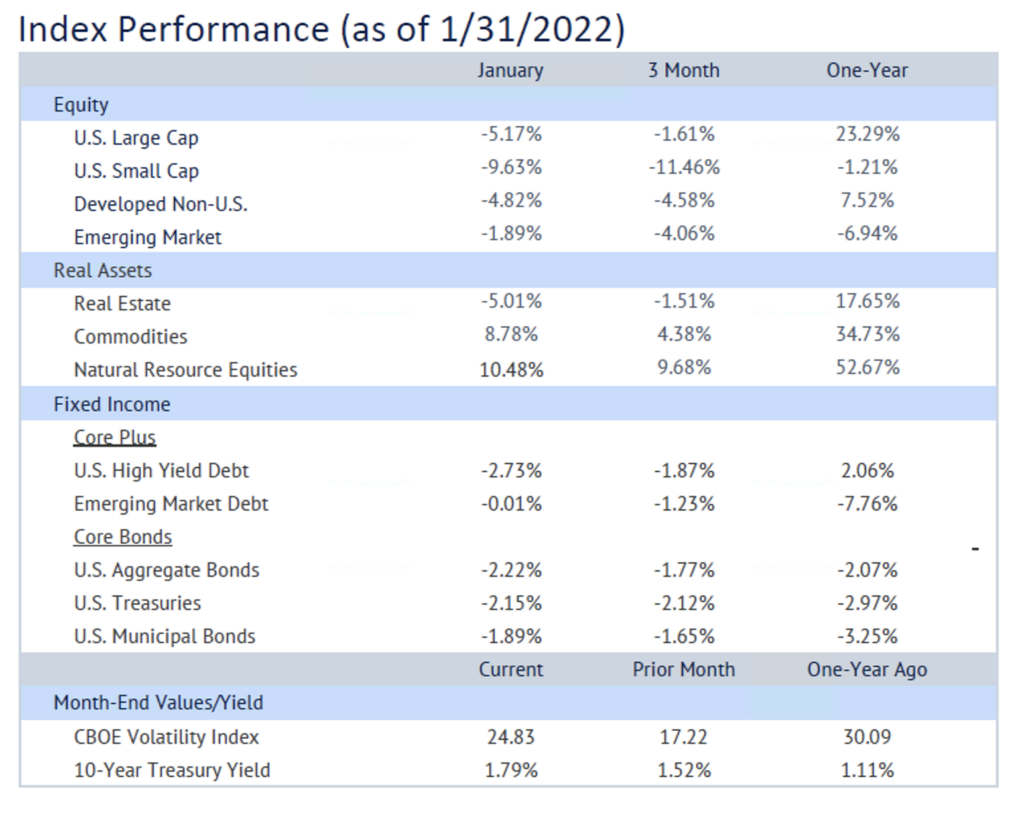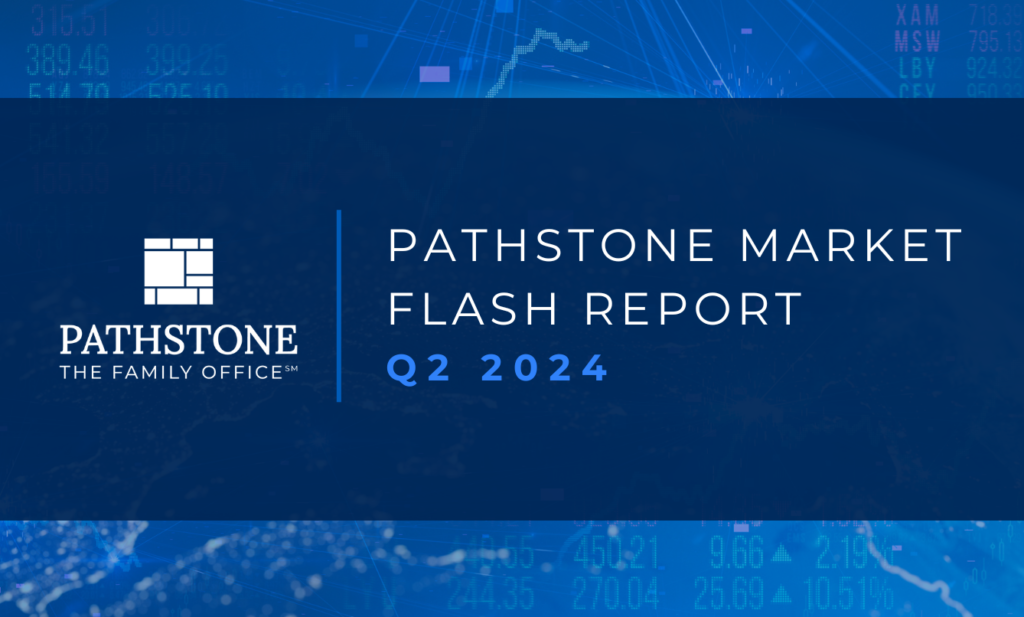Key Takeaways
- Markets dipped in January as the Omicron variant and the news of increasing interest rates stirred uncertainty in investors. Equities, real estate, and fixed income fell while commodities and natural resources rose.
- Value has been outperforming growth in U.S. equities and large cap outperformed small cap across U.S. and Global equities.
- U.S., U.K., and France all reported single-day record of Covid cases driven by Omicron in mid-January causing increased volatility in equity markets.
- Minutes from the December FOMC meeting showed that officials are fully on board with plans to more swiftly scale back the asset purchase program to give the central bank greater flexibility to raise interest rates this year. During a meeting in January, the Fed signaled it will begin raising rates in March to fight widespread inflation.
- U.S. inflation rose at its fastest pace in nearly 40 years to 7.1% YoY. However, month-over-month inflation slowed to 0.5% from 0.8% in the previous period. Inflation worries drove U.S. Consumer Sentiment to settle near 10-year lows.
- The labor department reported 290,000 initial jobless claims on a seasonally adjusted basis for the week of January 15th, which was the highest since October 2020. However, jobless claims dropped from that 3-month high by the end of the month.
- Oil prices topped $90 for first time since 2014 on rising Ukraine tensions.
- U.S. warns of fragile chip supply as inventory falls to just five days, impacting sales of new cars, computers, and other electronics.
- U.S. goods trade deficit surpassed $100bn for first time.

You cannot invest directly in an index; therefore, performance returns do not reflect any management fees. Returns of the indices include the reinvestment of all dividends and income, as reported by the commercial databases involved. Returns over one year have been annualized.
Source — Bloomberg, Morningstar, treasury.gov. S&P Dow Jones Indices.
Want to learn more? Contact Pathstone today!
Please see PDF for important disclosures.




















